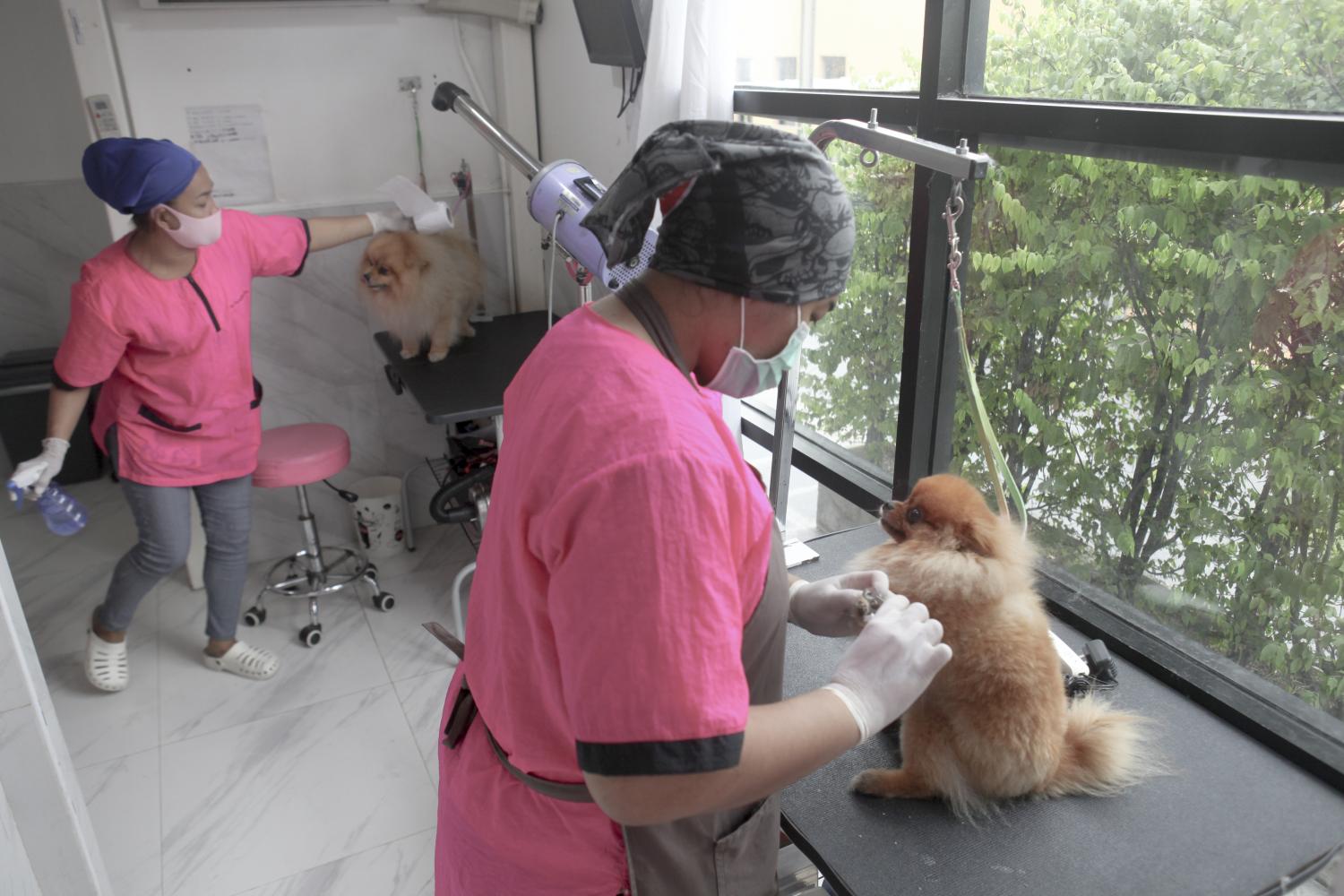
Picking up the pieces and preparing for the future after the economic and social ravages wrought by the coronavirus (Covid-19) pandemic cannot start soon enough. For Thailand and Southeast Asia more broadly, pre-pandemic imperatives of economic upgrading for higher value-added jobs and industries are now compounded by new Covid-induced dilemmas of rising unemployment and labour abundance. Addressing this double whammy of economic challenges requires policy responses that are nuanced, fair and forward-looking in trying to achieve multiple objectives after the virus subsides.
Over the course of months of the pandemic, headlines on economic contraction, lost jobs, and corporate bankruptcies continue to head south and have yet to bottom out. Together with a collapse in demand, the disruption in supply chains and production networks fanning protectionist elements worldwide, there has been what many see as an accelerating process of "de-globalisation". The ramifications from a less integrated world economy are far-reaching.
By most accounts, the ongoing economic doldrums are comparable to those of the Great Depression of the 1930s. Massive fiscal stabilisation packages in various Covid-afflicted countries will significantly cushion the adverse impact. However, their effectiveness will be nowhere like the recent past, such as the economic recovery after the Asian Financial Crisis in 1997-98 and the Global Financial Crisis of 2008-09, which was also driven by ongoing global economic activities. Given the degree of abrupt disruption to globalisation caused by the coronavirus, fiscal ammunition could be easily depleted before its effects kick in. On top of the fiscal stimulus, governments around the world will need to resort to a broader range of economic policies to drive economic recovery.
Despite the post-Covid economic onslaught, emerging Asia is still expected to outperform other regions, with a forecast of 1% growth in 2020 compared to a 3% contraction for the rest of the world, according to the International Monetary Fund's (IMF) World Economic Outlook. Yet, this average rate reflects variances and divergences in performance among developing Asian economies, especially those in Southeast Asia.
Economies that are dependent on external demand from trade and tourism will be hit harder. Thailand and Malaysia, for example, are projected to suffer more than others in the region, with contractions of 6.7% and 1.7%, according to the IMF. However, Vietnam, Indonesia and the Philippines are on course to expand, although well below half of earlier growth projections.
Unlike past recoveries, as was the case after 1997-98, export-driven growth from exchange rate depreciation and robust global demand will not be the go-to rescue and salvation. Much more will be needed this time and every economy will be forced to find its own way out of the Covid morass.
It is going to be doubly difficult for emerging economies to overcome Covid-19 because of divergent requirements in economic directions. On the one hand, economies like Thailand's and its myriad of firms will be pressed to invest in higher value-added activities that entail moving up and away from labour cost advantages to production using more skills and knowledge. Yet on the other hand, these economies will also face pressure to stick to labour-intensive industries because of unemployment and bankruptcies, especially among small- and medium-enterprises, following the massive disruptions caused by the pandemic.
These conflicting challenges are exacerbated by governance issues and weak institutions, inherent among emerging economies, not to mention vested interests. Moving forward, it is imperative to balance the need to provide a social safety net for the most vulnerable with the even more immediate need to retool and reskill them. Countries like Singapore have been at the forefront by picking up the tab for workers who enrol in reskilling (bolstering existing skills) and up-skilling (learning new know-how altogether). For Thailand, these skills-enhancement ways could include, for example, a government-financed provision of English language-training for hospitality workers from wait-staff and taxi drivers to masseuses.
For Thai firms, Covid-19 has also accelerated the need to adjust and adapt to the new normal in global-value-chain development and dynamics. Cost is no longer the paramount consideration for a firm's competitive advantage and should be considered next to innovation, quality, and flexibility. Being in the labour-intensive parts of the value chain is riskier than ever. Leveraging cost advantages was already a lost cause even before Covid-19, as labour costs are becoming less significant in the overall cost structure of industries. Automation and data-driven services must be increasingly incorporated into production in order to upgrade a firm's position in the global supply chain.
The sudden rise in unemployment due to lost jobs from the virus crisis is being felt most acutely among the less-skilled, as white-collared employment can be transferred online more easily. This means that blue-collared wage-earners and SME operators that focus on labour-intensive and lower-skilled tasks stand to lose the most. The government needs to better provide a safety net for this group of low-skilled workers and the SMEs that employ them. Retooling and reskilling these workers for post-Covid work should be a policy priority.
The old cliché of turning crisis into opportunities instead of wasting it applies to Thailand and its regional peers. Those who can bite the bullet and enact overdue reforms in a wider range and greater depth will benefit more. Doing so will require leadership, political will and adequate institutional setting to cultivate change from bargaining and compromises.
What Thailand needs to do in economic upgrading, education reforms, reskilling, up-skilling, shoring up SMEs is clear enough. In times of crisis like Covid-19, a lot of dirty linen can be exposed and washed in a process of creative destruction and forced adjustment, as can be seen in the bankruptcy filing of Thai Airways, the national flag carrier. However, the follow-through can sometimes prove most difficult in the face of graft-prone and self-motivated vested interests.
Thailand's stakeholders from media and civil society to small business owners need to hold their government to account and make sure crisis mitigation and rescue funds go where they are most needed to enable the Thai economy to become leaner and more competitive. What Thailand does not want is to end up with fewer efficient SMEs left standing after Covid-19 under the domination of the few conglomerate heavyweights that benefit from deeper pockets and better access to the government's stimulus and subsidies.
